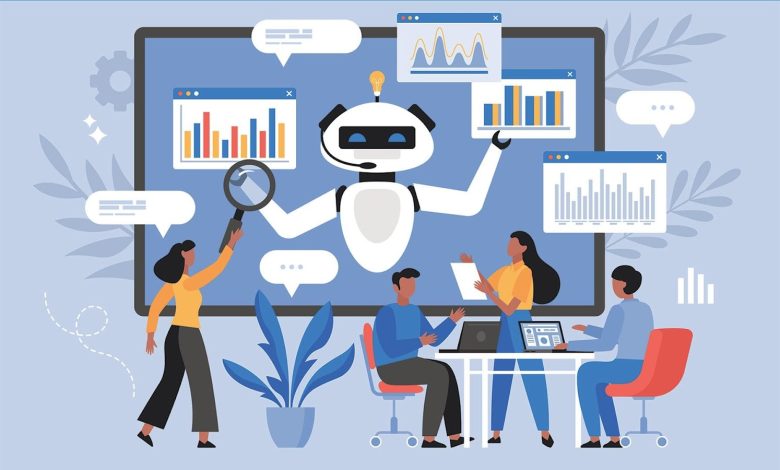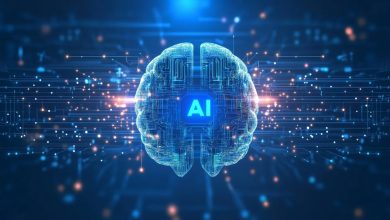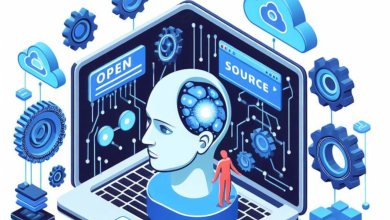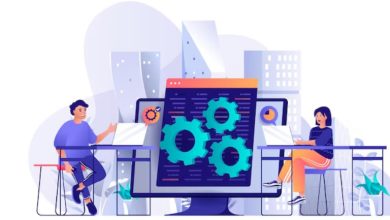The AI Divide In The Workplace: What Business Leaders See and Employees Don’t
Why Malaysia's Digital Future Won't Be Built by the Algorithms of Artificial Intelligence Alone

A recent study by Jabra reveals a significant gap where 84% of business leaders express strong confidence in the capabilities of Artificial Intelligence (AI), but only 26% of office workers utilise AI tools in their daily work.
Jabra’s global study involving AI decision-makers and 5,700 people across 13 countries reveals that:
- When it comes to actual usage of AI, 28% of Millennials and Gen Z are engaging with AI daily at work, whereas only 15% of Boomers are doing the same.
- While awareness of tools like ChatGPT and Copilot is high, actual usage remains low, and few see them as helpful for their jobs.
- Approximately one-third of decision-makers and knowledge workers are apprehensive about AI potentially replacing their jobs.
The study underscores that despite strong enthusiasm for AI, there is a clear disconnect between trust in the technology and its actual use in the workplace. Jabra has identified three key barriers that divide people and AI in the workplace.
1. The Generational Divide in AI Sentiment
Jabra’s research indicates that younger generations, particularly Gen Z and Millennials, are far more enthusiastic and willing to embrace AI tools. Nearly 47% of Millennials and 37% of Gen Z feel positive about AI at work, compared to just 15% of Boomers.
When it comes to actual usage of AI, 28% of Millennials and Gen Z are engaging with AI daily at work, while only 15% of Boomers are doing the same.
Additionally, the data from Jabra also reveals that AI decision-makers are relatively young, with 58% between the ages of 18 and 39, and 71% are not from the IT department.
2. Awareness of AI vs.Actual Usage of AI
While general awareness of AI is high, actual usage of specific tools paints a different picture.
According to the same Jabra study, 91% of employees are aware of AI in general, including well-known platforms like ChatGPT.
However, awareness of workplace-centric tools such as Microsoft Copilot dips to 66%. More tellingly, only 28% of employees use ChatGPT, and a mere 17% use Copilot at work.
Furthermore, just 8% to 14% perceive these tools as beneficial to their jobs.
This disconnect between awareness, sentiment, and practical usage indicates that employees may not fully understand the capabilities of these tools.
3. Employee Apprehension About AI and Job Security
The Jabra report highlights that approximately one-third of decision-makers and knowledge workers are apprehensive about AI potentially replacing their jobs.
This concern is mirrored in Malaysia, where a recent Ipsos survey revealed that nearly 73% of Malaysians fear that AI will lead to significant job losses, surpassing the global average of 65%.
This fear is not just speculation. Malaysia’s Minister of Science, Technology and Innovation, Chang Lih Kang, recently projected that over 30% of jobs in the country could be impacted by AI within the next decade.
These concerns are echoed in the latest Jabra report, which reveals that about 1 in 3 decision-makers (34%) and knowledge workers (33%) are worried about AI replacing their jobs. The anxiety is even more pronounced among women (35%) compared to men (32%), and older generations like Baby Boomers (25%) compared to Gen Z (20%). Workers in smaller companies also report significantly higher concern (37%) compared to those in larger organisations (25%).
While AI adoption is accelerating, these statistics reveal a deeper sentiment in the workforce. People are not just asking what AI can do, they are asking what it might undo.
Bridging the AI Gap in Malaysia: From Awareness to Adoption
To bridge this adoption gap, Malaysian companies must go beyond awareness to enable it at the ground level. It means:
- Implementing structured training programs tailored to different roles and generations.
- Fostering a culture of experimentation, where employees feel safe trying out AI without fear of repercussions.
- Showcasing success stories of how AI improves day-to-day operations across departments.
- Investing in integration and access, ensuring tools like Copilot and ChatGPT are not just available but embedded within core business systems.
Global tech giants are already laying the groundwork.
Microsoft, for example, has announced a $2.2 billion investment over four years to develop Malaysia’s cloud and AI infrastructure, including the establishment of a national AI center. Additionally, as part of Microsoft’s “AI for Malaysia’s Future” initiative, they also aim to equip 800,000 Malaysians with AI skills by the end of 2025.
To move from hype to real impact, organisations must actively involve employees in the transformation, providing clear guidance, inclusive training, and psychological safety.
In short, Malaysia’s AI future will not just be built on algorithms, but on how empowered the people using them are.
Read more and download the full report here: https://www.jabra.com/thought-leadership/ai-at-work.




